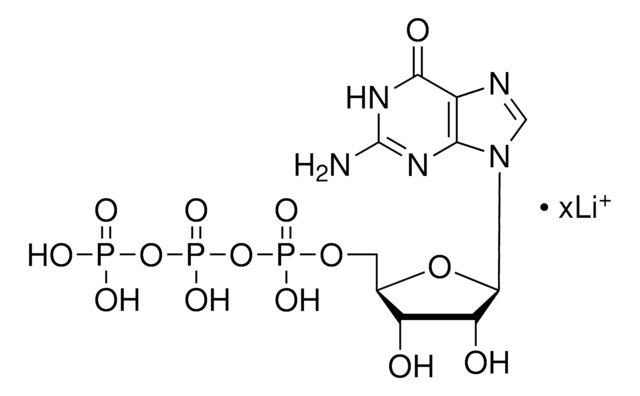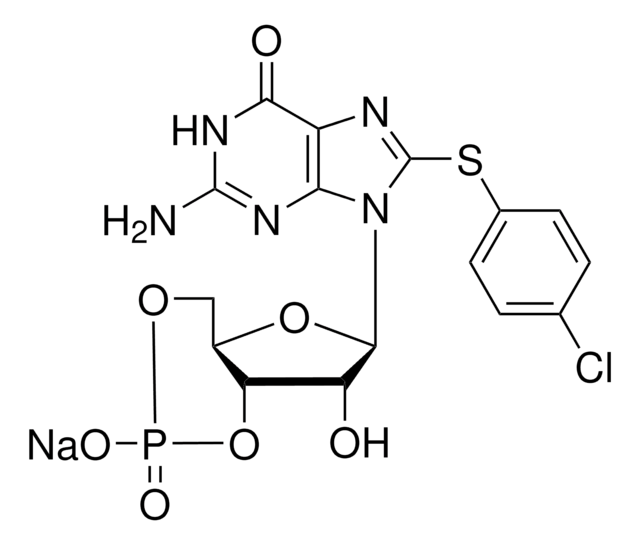10220647001
Roche
GTP-γ-S
Tetralithium salt
Synonyme(s) :
GTP-γ-S, GTP
Se connecterpour consulter vos tarifs contractuels et ceux de votre entreprise/organisme
About This Item
Code UNSPSC :
12352204
Produits recommandés
Description
C10H12N5O13P3SLi4
Niveau de qualité
Essai
87% (HPLC)
Forme
solid
Poids mol.
Mr 539.2 (GTP-γ-S)
Mr 563.0 (GTP-γ-S-Li4)
Composition
GDP, ≤12% HPLC
GMP, ≤1% HPLC
GTP, ≤2% HPLC
Conditionnement
pkg of 10 mg
Fabricant/nom de marque
Roche
Conditions de stockage
protect from light
Concentration
97%
Technique(s)
activity assay: suitable
Couleur
white
Solubilité
water: soluble
Température de stockage
−20°C (−15°C to −25°C)
Description générale
Guanosine 5′-O-(3-thiotriphosphate), tetralithium salt (GTP-γ-S) is a non-hydrolysable analog of GTP. It is an inhibitor of phosphodiesterase in photoreceptors.
Application
GTP-γ-S has been used:
- in G-Protein activation assay to assess the functionality of protease-activated receptor 4 (PAR4)
- in fluorimetric guanine nucleotide exchange assay of G protein alpha subunits (Gα)
- to monitor the Rac family small guanosine triphosphatase (GTPase) 2 (Rac2)-stimulated activity of phospholipase Cγ2 mutants
Actions biochimiques/physiologiques
Guanosine 5′-O-(3-thiotriphosphate) (GTP-γ-S) activates guanine-nucleotide-binding proteins and is slowly hydrolyzed enzymatically. It inhibits guanosine triphosphatase (GTPases) more potently than guanosine triphosphate (GTP),
Stockage et stabilité
Store powder dry at -15 to -25 °C; aqueous solutions with pH approx. 7 should be stable for six months at -15 to -25 °C.
Remarque sur l'analyse
Absorption: Content is measured in aqueous solution by absorption at 254 nm.
Conditions:
Conditions:
- approx. 10 mg/ml double-dist. water
- dilution: 9.8 ml double-dist. water + 0.2 ml sample.
Autres remarques
For life science research only. Not for use in diagnostic procedures.
Code de la classe de stockage
11 - Combustible Solids
Classe de danger pour l'eau (WGK)
WGK 1
Point d'éclair (°F)
does not flash
Point d'éclair (°C)
does not flash
Faites votre choix parmi les versions les plus récentes :
Déjà en possession de ce produit ?
Retrouvez la documentation relative aux produits que vous avez récemment achetés dans la Bibliothèque de documents.
Les clients ont également consulté
S Nawy et al.
Neuron, 7(4), 677-683 (1991-10-01)
Transmitter release from photoreceptors is decreased by light, resulting in a conductance increase in depolarizing bipolar cells. Addition of exogenous cGMP through a patch pipette to depolarizing bipolar cells from slices of dark-adapted tiger salamander retina resulted in an enhancement
K Sasaki et al.
Nature, 325(6101), 259-262 (1987-01-15)
Recently, a GTP-binding protein sensitive to islet activating protein (IAP) has been suggested to be important in producing K+-currents when the muscarinic receptor of the atrial muscle is activated by acetylcholine (ACh). Here we confirm the blocking effects of IAP
Gilbert Di Paolo, Markus R. Wenk
Lipids, 3-18 (2012)
Stephen R Sprang
Biopolymers, 105(8), 449-462 (2016-03-22)
This review addresses the regulatory consequences of the binding of GTP to the alpha subunits (Gα) of heterotrimeric G proteins, the reaction mechanism of GTP hydrolysis catalyzed by Gα and the means by which GTPase activating proteins (GAPs) stimulate the
Alba Navarro-Romero et al.
eLife, 11 (2022-10-12)
Williams-Beuren syndrome (WBS) is a rare genetic multisystemic disorder characterized by mild-to-moderate intellectual disability and hypersocial phenotype, while the most life-threatening features are cardiovascular abnormalities. Nowadays, there are no pharmacological treatments to directly ameliorate the main traits of WBS. The
Notre équipe de scientifiques dispose d'une expérience dans tous les secteurs de la recherche, notamment en sciences de la vie, science des matériaux, synthèse chimique, chromatographie, analyse et dans de nombreux autres domaines..
Contacter notre Service technique
![Guanosine 5′-[β,γ-imido]triphosphate trisodium salt hydrate ≥85% (HPLC), powder](/deepweb/assets/sigmaaldrich/product/structures/204/494/05808804-1ca7-44bf-b6c5-d4934dc7cb85/640/05808804-1ca7-44bf-b6c5-d4934dc7cb85.png)
![Guanosine 5′-[γ-thio]triphosphate tetralithium salt ≥90% (contains < 10% GDP, HPLC), powder](/deepweb/assets/sigmaaldrich/product/structures/131/514/e3025b6a-cb52-4818-b20f-98efac485c1a/640/e3025b6a-cb52-4818-b20f-98efac485c1a.png)
![Guanosine 5′-[β-thio]diphosphate trilithium salt ≥85% (HPLC), powder](/deepweb/assets/sigmaaldrich/product/structures/155/734/9bd8c8c5-4388-4f95-a924-4ff058fa4f41/640/9bd8c8c5-4388-4f95-a924-4ff058fa4f41.png)
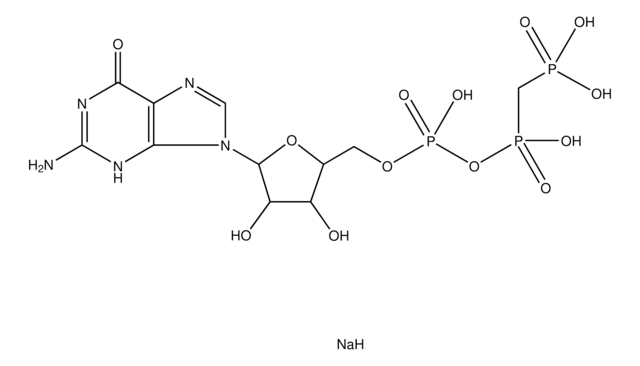
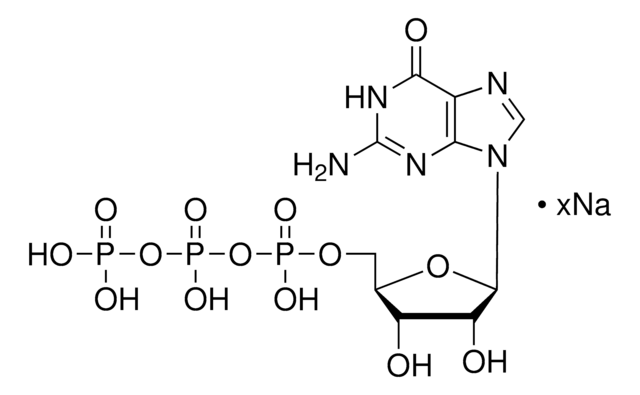
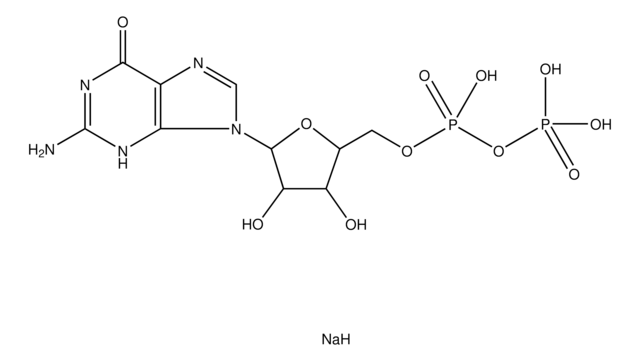
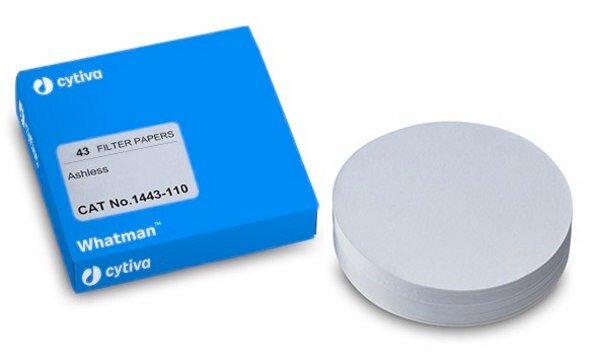
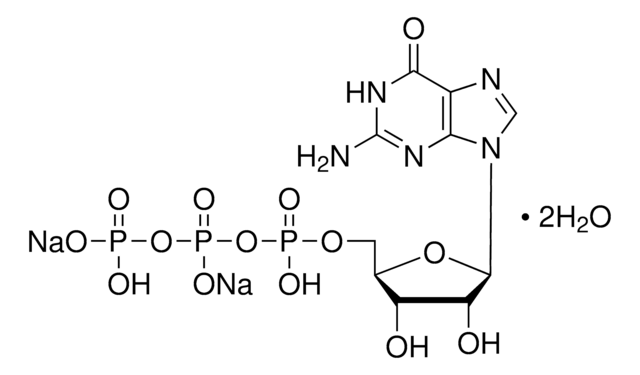
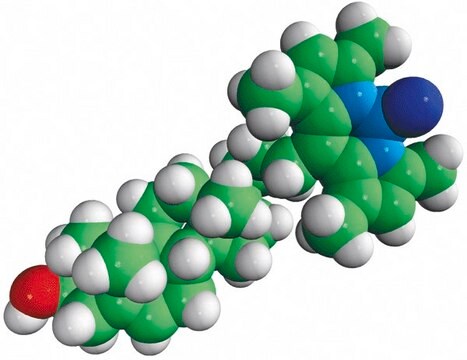
![Adenosine 5′-[γ-thio]triphosphate tetralithium salt ≥75% (HPLC), powder](/deepweb/assets/sigmaaldrich/product/structures/319/398/e29221c2-3649-455b-bd33-583bb017ec7d/640/e29221c2-3649-455b-bd33-583bb017ec7d.png)
